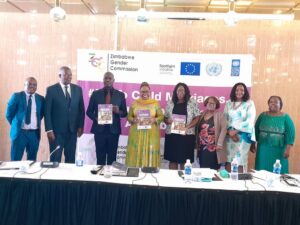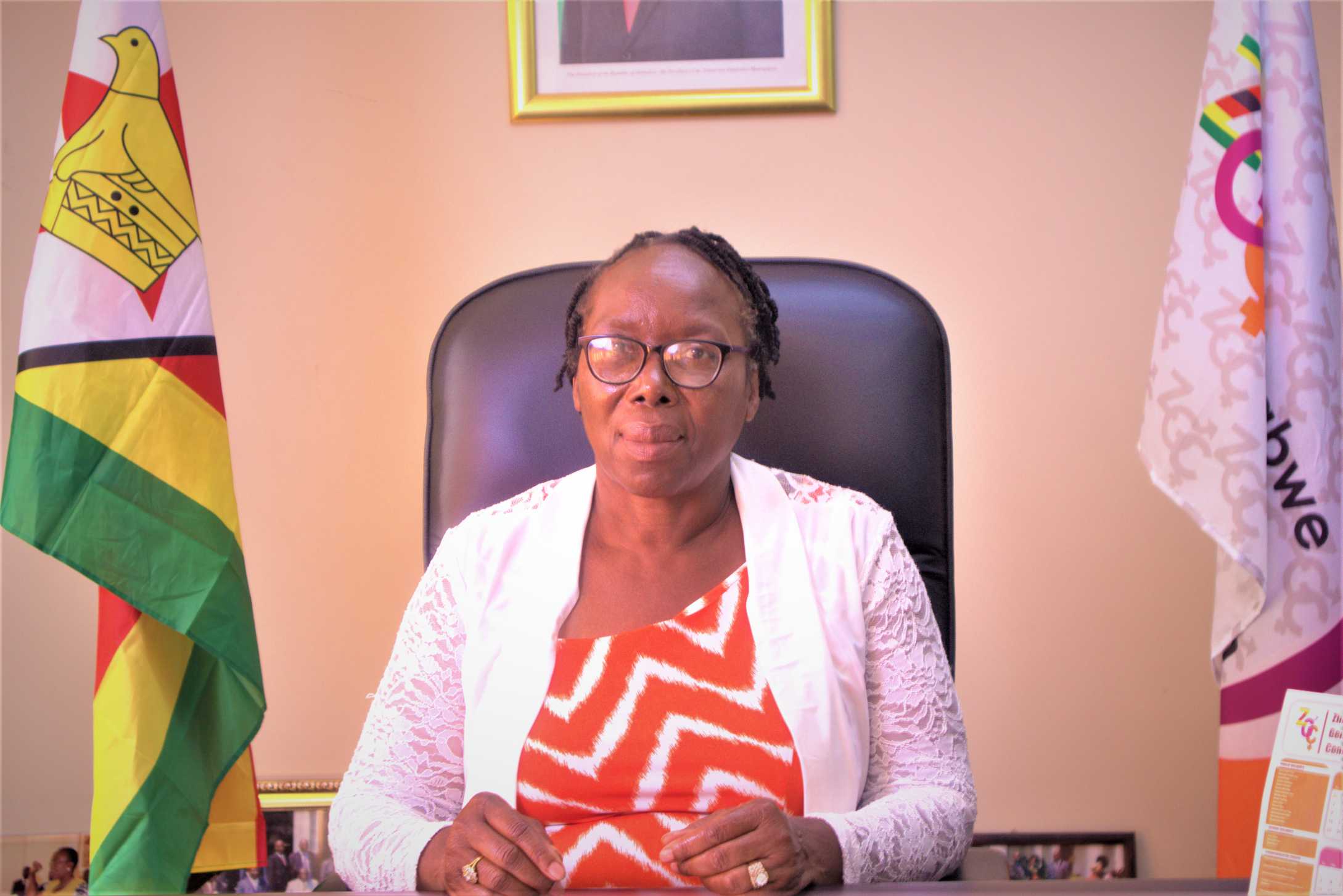|
Getting your Trinity Audio player ready…
|

By Lloyd Rabaya
As the world was celebrating the International Day of the Girl Child yesterday, the Zimbabwe Gender Commission (ZGC) launched a National Inquiry on child marriages in Zimbabwe to foster efforts to put an end to the scourge by 2030 in line with United Nations Sustainable Development Goals (SDGs) and the Second Republic’s Vision 2030.
In Zimbabwe, which is amongst the top 20 African countries where child marriage is prevalent according to 2021 United Nations Children’s Fund (UNICEF) data, 34% of girls are married before they reach the legally stipulated age of 18 years as compared to 2% of their male counterparts.
Mashonaland Central, which has the highest prevalence in the country, has 50% child marriage.
Speaking at the launch, ZGC Chairperson Margaret Mukahanana-Sangarwe said efforts to curb child marriage, sexual exploitation, and abuse (SEA) should involve all stakeholders and be inclusive in all aspects so that no stone will be left unturned.
“As you can already hear from the title, the inquiry sought to be as inclusive as possible encompassing all demographics of concern in addressing the issues of child marriages, sexual exploitation, and sexual abuse in different spaces,” she said.
In their work, ZGC also engages with people with disabilities (PWDs) who also face the same challenges but are more afraid to open up because of intimidation and fear of victimization.
Eradication of child marriages and SEA is also encompassed in the United Nations Sustainable Development Goals (SDGs) goals 5 and 16, which emphasize gender equality and, peace, justice, and strong institutions respectively.
In her presentation of the key contents of the inquiry, ZGC Complaints Handling and Investigations Manager Shimtah Nembaware deliberated on how there is no consensus on what a child is depending on beliefs and location, among other factors.
She emphasized that some people believe that once a child starts her menstruation, she is ripe and ready for marriage, while most believe that a girl child is a source of income when she gets married.
“So, 15% entered child marriages between 14 to 17 years and were married to men between 19 to 24 years.
We also interacted with PWDs and discovered that their parents were overprotective,” she said.
While carrying out their primary qualitative research, ZGC covered about 11 districts in different provinces where they had,” 11 public hearings, 92 key informants’ interviews, 22 reports, 2 395 community members, 20 closed hearings, three written submissions by individuals and 11 submissions by stakeholders, 24 closed hearings by stakeholders, 66 closed hearings with survivors, 283 survivor stories of child marriages, 72 video documentaries.”
Nembaware also reiterated that in Masvingo province, children were mainly taken advantage of by migrants from neighboring countries, while in Matabeleland North, mining was the major contributor. In Manicaland, religion is the major cause of child marriage and SEA, and an example is the case of Anna Machaya, the 14-year-old minor who died at a Johanne Marange church shrine during childbirth.
The inquiry made it clear that child marriage is not only found in the apostolic sect, and rural areas, and not only men above 35 years are the perpetrators. Also, the inquiry makes it clear that some young girls are intentionally getting into marriage. They are not always forced.
The guest of honor at the launch, the newly appointed Minister of Women Affairs Honorable Monica Mutsvangwa emphasized her support of the program as she said national development cannot be there if the girl child is not protected from malevolent figures in society and the inquiry is a powerful weapon in ensuring that the public is knowledgeable.
“This will undoubtedly bridge that information gap in programming around ending child marriages and also this is in line with our constitutional mandate of promoting gender equality by mitigating systematic barriers towards achieving gender equality, which include child marriages,” she said.
While efforts are being made to end child marriages by engaging with the apostolic sect, which is amongst the highest perpetrators, President Emmerson Mnangagwa in July this year visited the Johanne Marange church for their Passover while campaigning for the 23 and 24 August elections.
